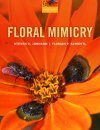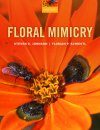By: Steven D Johnson(Author), Florian P Schiestl(Author)
184 pages, 8 plates with colour photos; b/w photos, b/w illustrations, tables
![Floral Mimicry Floral Mimicry]()
Click to have a closer look
About this book
Contents
Customer reviews
Biography
Related titles
About this book
Mimicry is a classic example of adaptation through natural selection. The traditional focus of mimicry research has been on defence in animals, but there is now also a highly-developed and rapidly-growing body of research on floral mimicry in plants. This has coincided with a revolution in genomic tools, making it possible to explore which genetic and developmental processes underlie the sometimes astonishing changes that give rise to floral mimicry. Being literally rooted to one spot, plants have to cajole animals into acting as couriers for their pollen. Floral mimicry encompasses a set of evolutionary strategies whereby plants imitate the food sources, oviposition sites, or mating partners of animals in order to exploit them as pollinators.
This first definitive book on floral mimicry discusses the functions of visual, olfactory, and tactile signals, integrating them into a broader theory of organismal mimicry that will help guide future research in the field. It addresses the fundamental question of whether the evolutionary and ecological principles that were developed for protective mimicry in animals can also be applied to floral mimicry in plants. Floral Mimicry also deals with the functions of floral rewardlessness, a condition which often serves as a precursor to the evolution of mimicry in plant lineages. The authors pay particular attention to the increasing body of research on chemical cues: their molecular basis, their role in cognitive misclassification of flowers by pollinators, and their implications for plant speciation.
Comprehensive in scope and conceptual in focus, Floral Mimicry is primarily aimed at senior undergraduates, graduate students, and researchers in plant science and evolutionary biology.
Contents
1: Introduction
2: The evolution and maintenance of floral rewardlessness
3: Generalised food deception
4: Batesian food-source mimicry
5: Sexual mimicry
6: Oviposition site mimicry
7: Special cases
8: Future directions in floral mimicry research
Customer Reviews
Biography
Professor Steven Johnson's research focuses on pollination biology, evolution, plant speciation, insect-plant relationships, and floral deception and mimicry. He is currently a full Professor at the University of KwaZulu-Natal, and holds the DST/NRF South African Research Chair in Evolutionary Biology. During the course of his career he has published or co-published more than 260 peer-reviewed journal articles as well as a number of books and book chapters. He has served on the editorial boards of Oecologia and Arthropod-Plant Interactions, and is currently an editorial board member of Proceedings of the Royal Society: Biological Sciences.
Professor Florian Schiestl obtained his PhD in evolutionary biology at the University of Vienna. He has subsequently worked at some of the leading research Universities, such as the Australian National University, the ETH Zürich and the University of California. Since 2007 he is a professor at the University of Zürich. His research focusses on floral signals, pollination biology, plant speciation, chemical ecology, and floral mimicry. He has published influential original scientific articles, book chapters and review papers articles on these topics. He served on the editorial board of Oecologia, and is currently an editorial board member of Frontiers in Ecology and Evolution.
By: Steven D Johnson(Author), Florian P Schiestl(Author)
184 pages, 8 plates with colour photos; b/w photos, b/w illustrations, tables



































